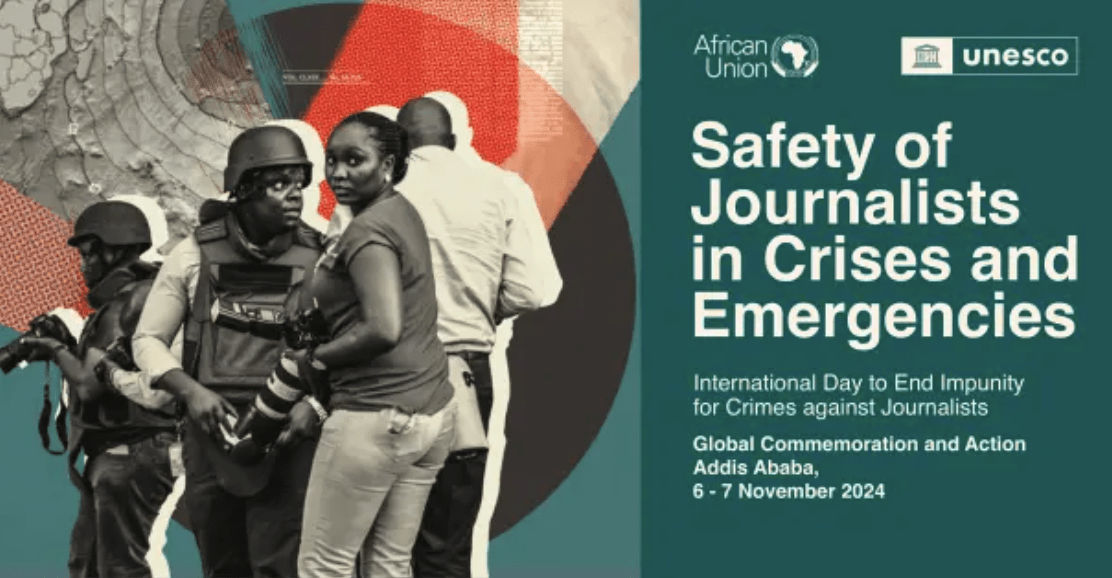Event |
Over the last few years, the media and journalists in Africa have continued to face significant challenges in the execution of their work. While there has been some progress in constitutional guarantees for press freedom, access to information, and freedom of expression on the continent, these have been overshadowed by regressive legislation and actions that hinder the role of the media. Instead, press freedom, not only in Africa but across the world is threatened by the very people who should be its guarantors – political authorities.
In 2022, the Collaboration on International ICT Policy for East and Southern Africa (CIPESA) coordinated the inaugural State of Media Freedom and Safety of Journalists in Africa research, which was initiated by UNESCO and supported by media associations and media development organisations from all regions of Africa. Research for the second edition of the report is ongoing. The report mapped prevailing gaps that undermine the safety of journalists and media freedom in Africa and served to inform strategies for the enhancement of legal and institutional frameworks for implementing the United Nations Plan of Action on the Safety of Journalists and the Issue of Impunity.
The International Day to End Impunity for Crimes against Journalists (IDEI) established in 2014 by the United Nations General Assembly in Resolution 68/163 serves to commemorate the memory of killed journalists, highlight the risks that journalists take to do their job, call for accountability for crimes committed against then, and reaffirm commitment to the protection and safety of journalists in the course of doing their work.
This year marks the tenth commemoration of the IDEI which will be hosted at the African Union Headquarters in Addis Ababa, Ethiopia on November 7,2024. As part of the commemoration, CIPESA, is organising two sessions:
Presentation and Panel on State of Media Freedom and Safety of Journalists in Africa:
November 7, 2024
Caucus Room 27
9.00-11.00 am
The panel will explore preliminary findings of the second edition of the State of Media Freedom and Safety of Journalists report, highlight the current nature and threats to press freedom and journalists’ safety, engage stakeholders on interventions to ensure journalists and media are protected against attacks by state and non-state actors.
Speakers:
Wairagala Wakabi, PhD – CIPESA
Abel Wabela – HaqCheck/Inform Africa
Nancy Angulo – UNESCO
David Omwoyo – Media Council of Kenya.
Rachael Nakitare – International Association of Women in Radio and Television (IAWRT)
Digital Security Clinic:
November 6-7, 2024
Lobby D
All day
The helpdesk will allow participants to access new innovative Internet freedom technology, privacy and data protective tools, measures and platforms in order to respond to their emergent digital security concerns, whilst offering immediate support and demos of various digital security tools and advisory on improving individual security and resilience against threats and dangers when working, engaging, socialising and organising online.
The clinic is a longstanding feature at regional and international events including CIPESA’s annual Forum on Internet Freedom in Africa (FIFAfrica). The model has been replicated at the Global Internet Governance Forum (IGF) 2022 which was held in Addis Ababa, Ethiopia, RightsCon 2023 which was held in Costa Rica and various national convenings across the continent.
Facilitators:
Brian Byaruganga, CIPESA
These efforts add to CIPESA’s various interventions across Africa aimed at equipping journalists with the necessary skills and tools to navigate the environments they work in safely. These have included interventions on better understanding digital rights, improved fact-checking, addressing disinformation and the threats to media freedom and safety, election reporting and the gendered dynamics of media safety. In addition, CIPESA has been actively providing practical digital security training to equip journalists with the skills they need to protect themselves online as necessary steps in safeguarding against digital threats and ensuring they can continue their work safely.

